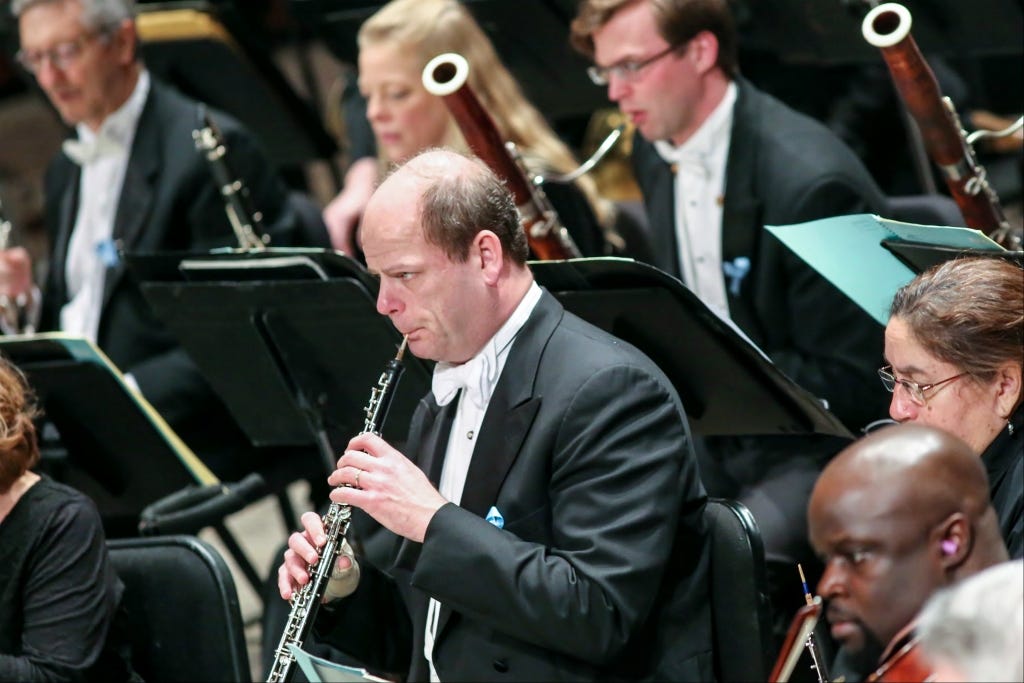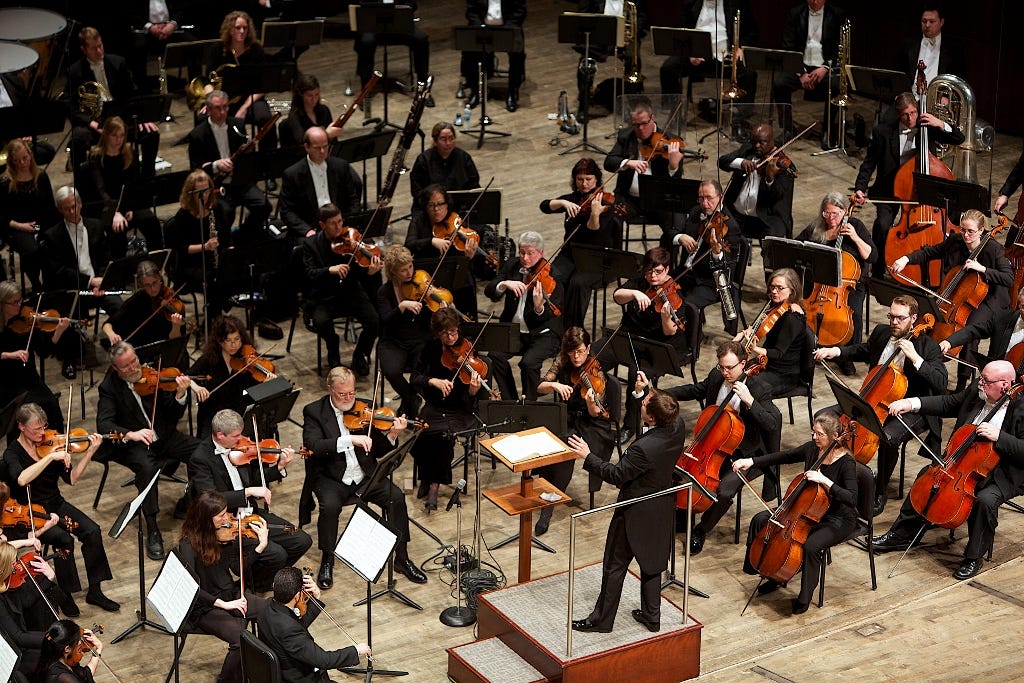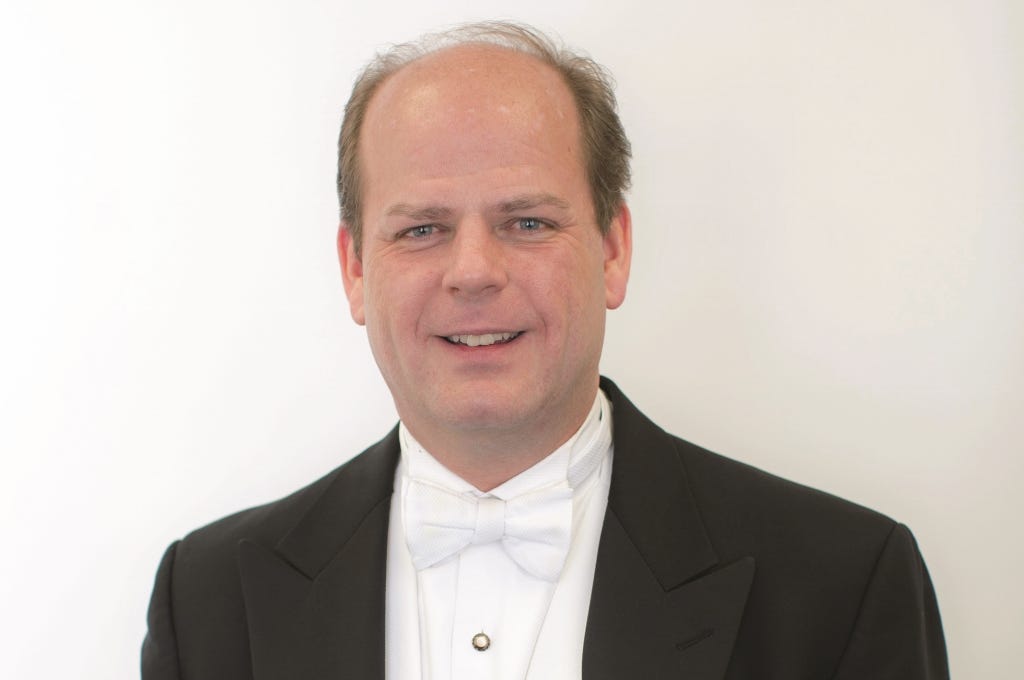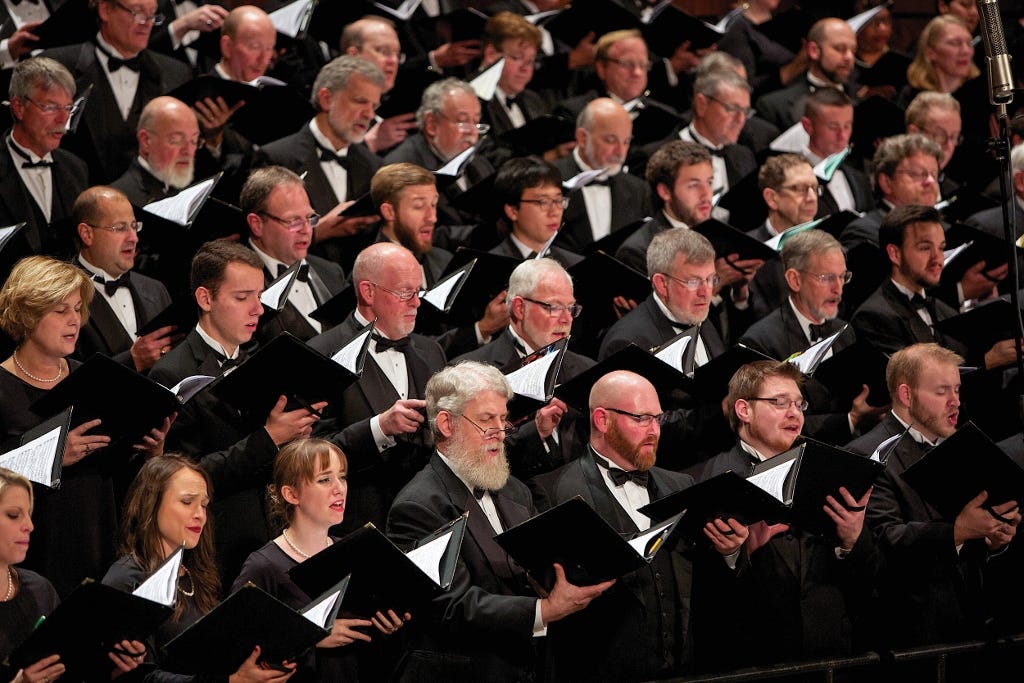In Beethoven’s footsteps: Local composer finds inspiration in medical struggles to create “Testament”
This weekend, along with performing one of the most famous symphonies of all time—Beethoven’s Ninth—the Grand Rapids Symphony will premiere new music by Alexander Miller, who also overcame medical challenges to continue making art.

Throughout history, many great works of art — Picasso’s “Guernica,” John Steinbeck’s “Of Mice and Men,” Verdi’s Requiem — have been inspired by tragedy.
For some artists, their entire output stems from adversity.
Ludwig van Beethoven, one of the most important composers in the history of classical music, suffered the cruelest blow of all when the composer, still in his late 20s, realized he was going deaf. Nonetheless, over the next 25 years, he would go on to compose some of his greatest music such as his “Choral” Symphony №9.
The Grand Rapids Symphony and Symphony Chorus will perform Beethoven’s Ninth Symphony on Friday and Saturday, May 18–19, in DeVos Performance Hall to conclude its 2017–18 season. Music Director Marcelo Lehninger also will lead the orchestra in two contemporary works inspired by Beethoven, including the world premiere of a new piece by Grand Rapids composer Alexander Miller.
Miller, who is GRS assistant principal oboist as well as nationally-known composer, wrote “Testament,” a piece inspired by Beethoven’s struggles to overcome his loss of hearing.
“I felt drawn to this subject matter because of my own struggles with medical issues,” says Miller, a native of the Detroit area who joined the Grand Rapids Symphony in 1992.

In 2009, The Juilliard School graduate was diagnosed with a papillary craniopharyngioma, a rare brain tumor leading to surgery to remove a golf ball-sized mass behind his sinus cavity. That was followed by a long, difficult recovery involving persistent headaches, low energy, quirky and unreliable vision, and a ringing in his ears, rather like Beethoven suffered. Miller blogs about his experiences with brain surgery and recovery at HusbandAmused.com.
In 1798, Beethoven first noticed his hearing loss after flying into a tirade over being interrupted while at work. The rage caused him to fall over. When he got up, he found couldn’t hear. Eventually, his hearing recovered partially, but then then began to decline.
In 1802, he wrote a letter to his brothers, which he never sent. What’s known today as Beethoven’s “Heiligenstadt Testament” was found among his papers after his death in 1827
“He expresses his anger and frustration with his incurable hearing loss — even pondering suicide,” Miller says. “But in the end declares his will to go on for the sake of the art he has yet to produce.”

Miller’s “Testament,” Beethoven’s 1802 ‘Heiligenstadt Testament’ for Bass-Baritone, Chorus and Orchestra, was commissioned by the Grand Rapids Symphony. Music Director Marcelo Lehninger will conduct the premiere of the 16-minute work featuring acclaimed baritone Richard Zeller, who has spent 12 seasons at the Metropolitan Opera and has performed with orchestras of Boston, Cleveland and Chicago as well as internationally with the orchestras of Toronto and Montreal and the philharmonics of Tokyo, Czech and Korea.
“Beethoven was no wordsmith, but there is a raw energy to the ‘Testament’ that has always spoken to me,” Miller says. “Questions about what it takes to go on living despite a deteriorating condition are topics I can relate to, especially after two brain surgeries, the never-ending follow-up care, and the side conditions I have since developed.”
Miller chose portions of the text that speak to Beethoven’s heartfelt outpouring of anguish and despair over his condition.
“Using just a fraction of the entire text, I constructed a small story,” Miller says. “A composer suffers a medical setback, is pushed to the edge of despair, and then decides to go on for the sake of art and humanity.”

By 1814, at age 44, Beethoven was almost completely deaf. His final works, notable for their intellectual depth and intense, highly personal expression, include his Ninth Symphony, which was premiered in 1824.
Considered one of Beethoven’s greatest works as well as one of the most important compositions in the history of classical music, it’s a revolutionary piece of music that uses the text of Friedrich Schiller’s poem “Ode to Joy,” which celebrates the universal brotherhood of all humanity.
Soprano Jessica Rivera, mezzo-soprano Susan Platts, and tenor John Matthew Myers along with Zeller will join the 140-voice Grand Rapids Symphony Chorus prepared by Pearl Shangkuan.

The concert opens with another contemporary work inspired by Beethoven. “Variações Temporais, Beethoven Revisitado (Temporal Variations, Beethoven Revisited)” by Brazilian composer Ronaldo Miranda.
Composed in 2014, it’s a witty, 10-minute series of short, orchestral portraits, each inspired by a particular work of Beethoven’s. Lehninger conducted the world premiere performance of this work with the most important orchestra in Brazil’s largest city the Orquestra Sinfônica do Estado de São Paulo in July 2014.
Tickets for the Grand Rapids Symphony Classical Series concert start at $18 adults or $5 students. Call (616) 454–9451 or go online to GRSymphony.org. “Inside the Music,” a pre-concert conversation, will be held at 7 p.m. on Friday and Saturday in the DeVos Recital Hall.
Besides the Grand Rapids Symphony, Miller’s music also has been performed by the symphony orchestras of Baltimore, Alabama and Santa Barbara among others. Many have performed his “Fireworks,” which the Grand Rapids Symphony played for its first performance in New York City’s Carnegie Hall in May 2005. His 1998 work “Let Freedom Ring” for Narrator and Orchestra, based on Martin Luther King Jr.’s “I Have A Dream” speech, has been performed by such celebrity narrators as James Earl Jones, Danny Glover, William Warfield and Harry Belafonte and was recorded by former President Bill Clinton prior to the opening of the Clinton Presidential Library in Little Rock, Arkansas.
Since his 2009 surgeries and recovery, Miller has composed “Scherzo Crypto” for the San Antonio Symphony and “Rocomoji for the River Oaks Chamber Orchestra in Houston. In 2013, the Grand Rapids Symphony opened its season with Miller’s ‘Madam Bovary’ Concerto for Cello and Orchestra featuring principal cellist Alicia Eppinga.
“Living with a difficult medical condition becomes a decision,” Miller says. “One decides to endure, to go on. Holding onto the knowledge that we actually have a choice in the matter — that ace up our sleeve — is often the coping mechanism that saves us from ourselves.”
Disclosure: Jeffrey Kaczmarczyk works for the Grand Rapids Symphony as their Senior Manager of Communications and Media Relations.
